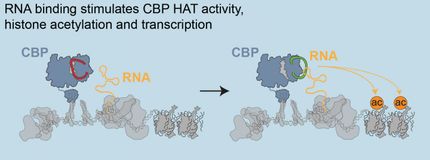Discovery of a new gene critical in the development of lung and pancreatic cancers
Inhibition of this gene provokes a drastic reduction in the size of these tumors
Researchers at the Center for Applied Medical Research (CIMA) of the University of Navarra (Spain) have identified a critical gene, FOSL1, in the development of lung and pancreatic cancer.

Human lung cancer cells WITH & WITHOUT FOSL1 are shown.
CIMA researchers
Approximately 25% of patients with lung cancer and 90% of those with pancreatic cancer show mutations in the KRAS gene, the most commonly mutated oncogene in cancer, and, at present, there are no effective therapies for these patients.
Using an innovative bioinformatic application (which analyzes many series of samples from patients with different types of cancer) the CIMA researchers have identified a core of 8 genes regulated by the KRAS oncogene. From these genes, the researchers focused on FOSL1 because they found that in lung and pancreatic cancer, "patients with high-level mutations of the gene we have identified had the worst survival prognosis", explained Dr. Silve Vicent, a researcher on the CIMA Solid Tumors and Biomarkers Program and head of this research. "What is most important is that inhibition of FOSL1 brings about a great reduction in the size of the tumors in the lungs and pancreas. Thus, the results present this gene as a new molecular target to which new drugs should be directed", the researcher added.
The work, which begun three years ago, has used a total of 2000 samples from patients with lung cancer, pancreatic cancer, cholangiocarcinoma, colorectal cancer and multiple myeloma, together with cell lines from human and mouse tumors and genetically- modified models.
A combined strategy of drugs and clinical trials
The CIMA researchers have also shown that FOSL1 affects another gene, AURKA, which, to date, had been thought to be regulated independently of the KRAS oncogene; currently clinical trials with a drug inhibiting it are currently on going.
For the first time, the CIMA researchers have tested the combination of drugs against AURKA with drugs against another important gene for tumors with KRAS mutation, MEK, and have observed greater elimination of tumor cells. "This combined strategy promotes reduction of the size of tumors with mutated KRAS", Dr. Vicent stressed. "The fact that both drugs are already being used clinically is heartening as the benefits of this new treatment may reach patients within a relatively short time".
"The next step will be the identification of biomarkers which respond to the combined treatment we have described. This step is critical, as not all patients with mutated KRAS are identical; therefore the type of molecular changes which characterize patients who may finally benefit from this treatment must be better defined", concluded the CIMA researcher.
Original publication
Other news from the department science

Get the analytics and lab tech industry in your inbox
By submitting this form you agree that LUMITOS AG will send you the newsletter(s) selected above by email. Your data will not be passed on to third parties. Your data will be stored and processed in accordance with our data protection regulations. LUMITOS may contact you by email for the purpose of advertising or market and opinion surveys. You can revoke your consent at any time without giving reasons to LUMITOS AG, Ernst-Augustin-Str. 2, 12489 Berlin, Germany or by e-mail at revoke@lumitos.com with effect for the future. In addition, each email contains a link to unsubscribe from the corresponding newsletter.























































